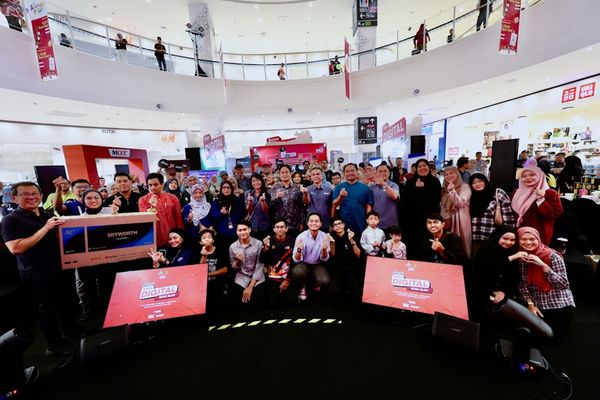By Suhaila Shahrul Annuar
SHAH ALAM, May 13 — The eUsahawan programme by the Malaysian Digital Economy Corporation (MDEC) has trained 103,858 entrepreneurs from Selangor, resulting in over RM309 million in cumulative sales.
According to its chairman, Syed Ibrahim Syed Noh, the programme, implemented in 2015, emphasises on digital entrepreneurship, highlighting its role in income generation, product promotion, and sales increment.
“Through eUsahawan programme, MDEC successfully trained a total of 563,543 students of higher education institutions (IPT), technical and vocational education and training (TVET) students and entrepreneurs nationwide, generating cumulative sales of over RM1.24 billion,” he said in his speech at the opening ceremony of the Jelajah Saya Digital (JSD) @ Shah Alam programme, which was officiated by state executive councillor for innovation Dr Fahmi Ngah, yesterday.
Syed Ibrahim emphasised the significance of establishing a comprehensive and sustainable digital economic ecosystem to foster inclusivity and enhance competitiveness in today's digital era.
“MDEC has implemented a structured program to ensure a sustainable supply of digital technology talent to meet the needs of the industry.
“One of the digital talent development programmes developed at the school level is MyDigitalMaker, which was launched in August 2016.
“Until December last year, more than 2.5 million students across the nation have benefited through this programme which is a collaborative effort from various parties from the public, private, and academic sectors,” he said.
JSD @ Shah Alam, the fifth series this year, is a two-day event held at Aeon Mall Shah Alam from Saturday. The carnival concept features interactive activities like digital literacy and entrepreneurship workshops, e-sports competitions and government agency exhibitions focusing on digital aspects.
JSD focuses on four main pillars: Digital Literacy, Digital Business, Digital Freelance and Digital Career, benefiting target groups such as B40, unemployed graduates, senior citizens, persons with disabilities, school and college students, as well as micro, small, and medium-sized entrepreneurs.




